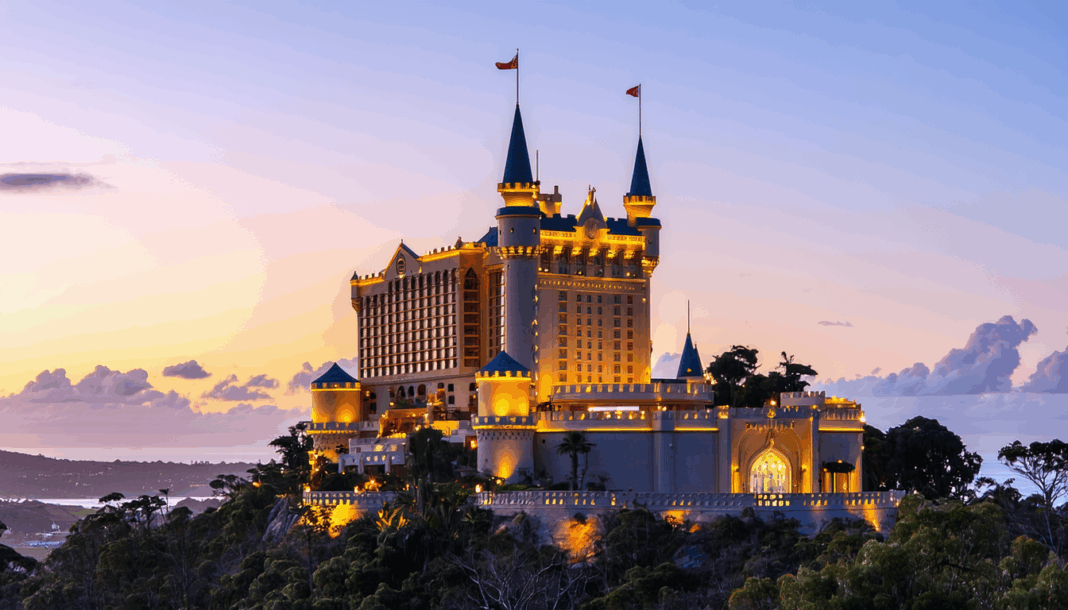Cliff Castle Casino, a renowned entertainment destination in the United States, is making headlines with its strategic interest in the Australian gaming sector. As global casino operators seek new growth opportunities, Cliff Castle Casino’s potential entry into Australia signals a significant shift for both local and international stakeholders. This development comes at a time when Australia’s gaming industry is experiencing regulatory changes and increased competition.
Expanding Horizons: Cliff Castle Casino’s International Ambitions
Cliff Castle Casino, located in Camp Verde, Arizona, has built a strong reputation since its opening in 1995. Operated by the Yavapai-Apache Nation, it features over 650 slot machines, table games, restaurants, and an adjoining hotel. In recent years, the casino has reported steady annual revenue growth of approximately 7%, according to financial disclosures from parent company Yavapai-Apache Gaming Enterprise.
In early June 2025, sources close to Cliff Castle Casino confirmed that senior executives have been exploring partnerships with Australian hospitality groups. The aim is to bring their unique brand of entertainment and hospitality to major cities such as Sydney and Melbourne.
“Australia represents one of the most dynamic gaming markets outside North America,” said Michael Turner, an independent casino industry analyst based in Sydney. “The arrival of established brands like Cliff Castle Casino could raise standards for customer experience while intensifying competition.”
Australia’s Gaming Landscape: Opportunities and Challenges
Australia boasts one of the world’s highest gambling participation rates—over 39% of adults engage in some form of gambling each year (Australian Gambling Statistics Report 2024). The country hosts more than 20 licensed casinos across six states and two territories.
However, recent regulatory reforms have reshaped market dynamics:
- In March 2025: New South Wales introduced stricter anti-money laundering measures.
- April 2025: Victoria announced caps on electronic gaming machine numbers.
- Nationally: The federal government continues reviewing online betting regulations.
These changes present both challenges and opportunities for new entrants like Cliff Castle Casino. Industry experts believe that compliance with evolving rules will be crucial for success.
“Operators must demonstrate robust responsible gambling frameworks,” noted Dr. Emily Harris from Monash University’s Centre for Gambling Research. “International brands are expected to invest heavily in community engagement if they wish to thrive here.”
Potential Impact on Stakeholders
The prospect of Cliff Castle Casino entering Australia has sparked interest among several key groups:
Local Communities:
New investments could generate hundreds of jobs during construction phases as well as ongoing roles within hospitality operations.
Tourism Sector:
A globally recognized brand may attract international visitors seeking premium experiences beyond traditional tourist attractions.
Existing Operators:
Major players such as Crown Resorts or Star Entertainment Group may face stiffer competition but also benefit from increased market visibility overall.
According to data from Tourism Research Australia (May 2025), integrated resorts contributed $3 billion AUD annually pre-pandemic—a figure projected to rebound by late-2026 if new entrants stimulate demand further.
Expert Perspectives on Market Entry
Industry professionals remain cautiously optimistic about this development:
- “If executed thoughtfully—with respect for local culture—Cliff Castle can set benchmarks others aspire toward,” said Lisa Chenault-Jones from Australasian Hospitality Consultants.
- “There are risks around oversaturation; however careful site selection will be key,” added David McGregor at Global Gaming Advisors Pty Ltd.
- Community leaders emphasize transparency regarding social impacts remains essential throughout any approval process or public consultation period.
Looking Ahead: What Comes Next?
While formal announcements regarding specific locations or timelines are pending as negotiations continue through Q3–Q4 2025,
the broader implications are clear:
- Increased foreign investment could accelerate innovation within Australia’s leisure sector.
- Regulatory scrutiny will likely intensify amid heightened public awareness around responsible gambling practices.
- Collaboration between Indigenous-owned enterprises like Yavapai-Apache Nation (owners of Cliff Castle) and Australian partners may foster unique cross-cultural business models.
Conclusion
Cliff Castle Casino’s potential expansion into Australia marks a pivotal moment for both parties involved—the operator seeking global reach,
and Australia’s vibrant yet tightly regulated gaming landscape welcoming fresh perspectives.
As discussions progress through late-2025,
industry observers anticipate further updates that could reshape expectations across tourism,
employment,
and community engagement nationwide.
Frequently Asked Questions About Cliff Castle Casino & Its Plans For Australia
What is Cliff Castle Casino?
Cliff Castle Casino is an award-winning resort located near Sedona in Arizona (USA), operated by the Yavapai-Apache Nation since its opening nearly three decades ago.
Why does it want to enter the Australian market?
Australia offers high consumer demand for entertainment options alongside robust infrastructure—making it attractive for international operators looking
to diversify their portfolios outside North America.
When might we see developments?
Negotiations with local partners began mid–2025; official announcements regarding location choices or launch dates are expected later this year or early next year depending on regulatory approvals.
How would this affect existing casinos?
Increased competition typically drives innovation but also requires all operators—including newcomers—to adhere strictly
to evolving compliance standards set forth by state/federal authorities.
For continued coverage on cliff castle casino news impacting Australia’s economy
and tourism sectors,
stay tuned as more details emerge throughout Q4–Q1 next year.

